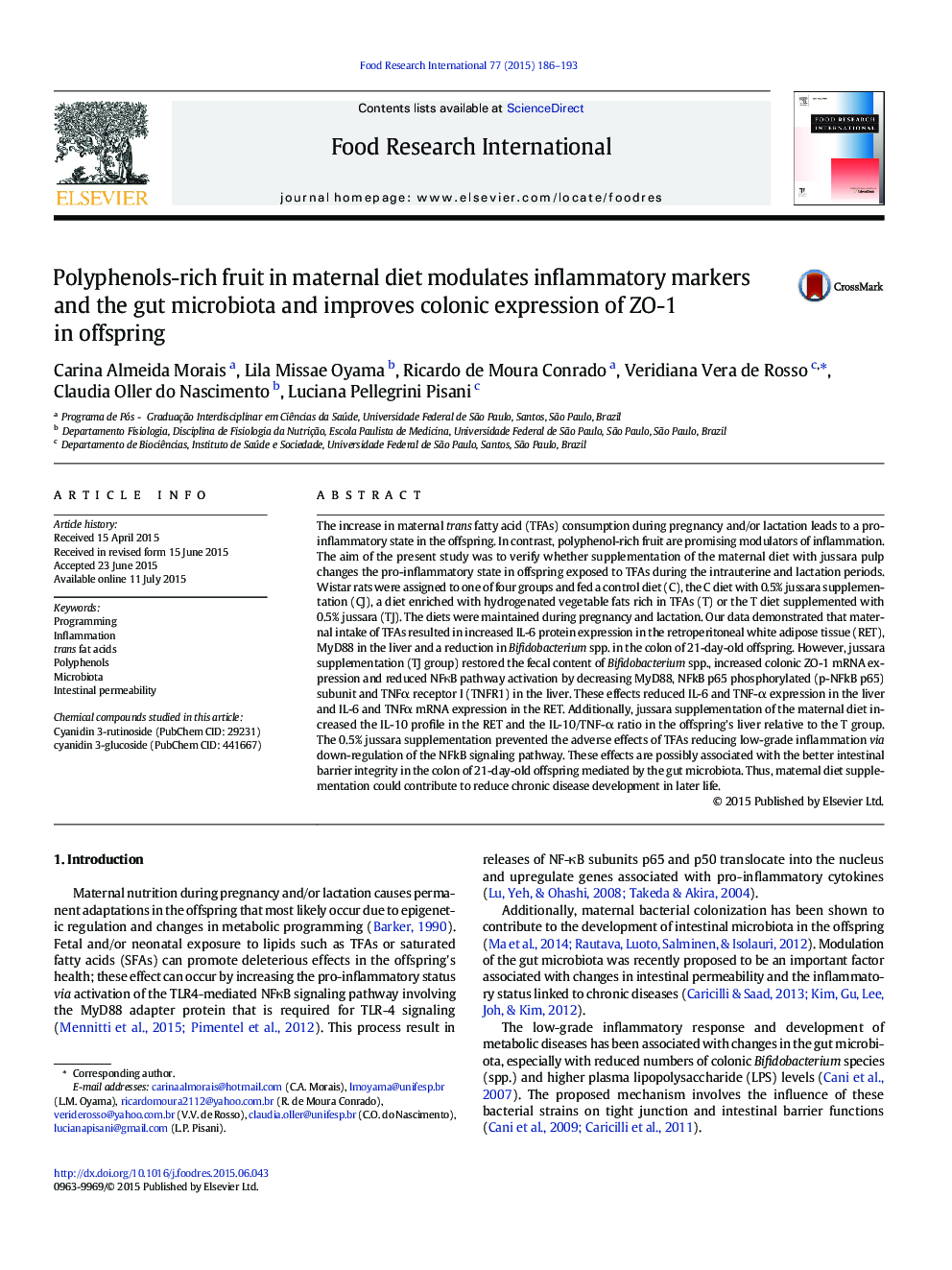| Article ID | Journal | Published Year | Pages | File Type |
|---|---|---|---|---|
| 6395088 | Food Research International | 2015 | 8 Pages |
â¢Maternal intake of TFAs increased IL-6 protein expression in the RET tissue of offspring;â¢Jussara restored the fecal content of Bifidobacterium spp. and increased colonic ZO-1 mRNA expression;â¢Jussara prevented low-grade inflammation via down-regulation of the NFkB signaling pathway;â¢Jussara improved paracellular barrier in the colon of offspring that was likely mediated by the gut microbiota.
The increase in maternal trans fatty acid (TFAs) consumption during pregnancy and/or lactation leads to a pro-inflammatory state in the offspring. In contrast, polyphenol-rich fruit are promising modulators of inflammation. The aim of the present study was to verify whether supplementation of the maternal diet with jussara pulp changes the pro-inflammatory state in offspring exposed to TFAs during the intrauterine and lactation periods. Wistar rats were assigned to one of four groups and fed a control diet (C), the C diet with 0.5% jussara supplementation (CJ), a diet enriched with hydrogenated vegetable fats rich in TFAs (T) or the T diet supplemented with 0.5% jussara (TJ). The diets were maintained during pregnancy and lactation. Our data demonstrated that maternal intake of TFAs resulted in increased IL-6 protein expression in the retroperitoneal white adipose tissue (RET), MyD88 in the liver and a reduction in Bifidobacterium spp. in the colon of 21-day-old offspring. However, jussara supplementation (TJ group) restored the fecal content of Bifidobacterium spp., increased colonic ZO-1 mRNA expression and reduced NFκB pathway activation by decreasing MyD88, NFkB p65 phosphorylated (p-NFkB p65) subunit and TNFα receptor I (TNFR1) in the liver. These effects reduced IL-6 and TNF-α expression in the liver and IL-6 and TNFα mRNA expression in the RET. Additionally, jussara supplementation of the maternal diet increased the IL-10 profile in the RET and the IL-10/TNF-α ratio in the offspring's liver relative to the T group. The 0.5% jussara supplementation prevented the adverse effects of TFAs reducing low-grade inflammation via down-regulation of the NFkB signaling pathway. These effects are possibly associated with the better intestinal barrier integrity in the colon of 21-day-old offspring mediated by the gut microbiota. Thus, maternal diet supplementation could contribute to reduce chronic disease development in later life.
